What it's like to take drugs in virtual reality
Do not try this at home
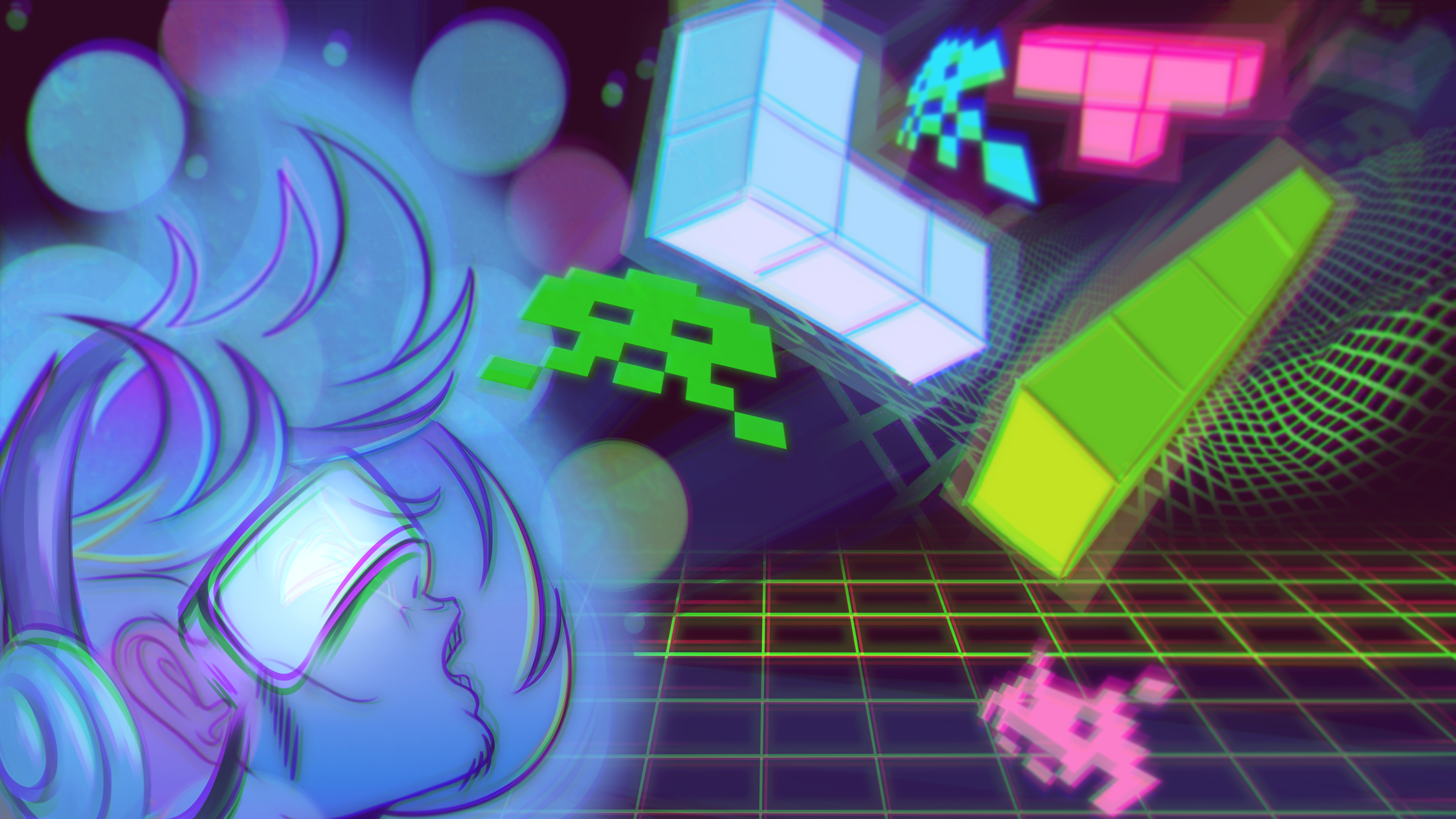
In American Truck Simulator, you can occasionally spot a UFO hovering over the Nevada desert. A neat little Easter Egg for most of us, especially in virtual reality, but Logan is on magic mushrooms, and he is freaking out.
As out-of-body experiences go, virtual reality is often vivid and occasionally intense, but some VR users are taking it a step further. They're doing it while on drugs.
Drugs and virtual reality have long shared a close relationship. While Palmer Luckey was still in nappies, famous American psychologist and counterculture icon Timothy Leary was promoting virtual reality and referring to the PC as the "LSD of the 90s". The trails of 60s psychedelia met with the cyberpunk era and formed a comfortable camaraderie. People were drawing similarities between psychedelics and virtual reality, but the two hadn't completely overlapped.
Now, thanks to the second wave of virtual reality - more accessible, less juddery, faster-booting VR - people are strapping on and doping up. Groups have sprung up on the web; Reddit hosts a few communities - VR "Psychonauts" like to frequent /r/trees3D and /r/RiftintotheMind - where people share their experiences and offer advice to other intrepid travellers.
"VR is an experience but why not kind of take it to the next step?" says Logan, who recently returned to psychedelics after a bad experience turned him off about 10 years ago. "When I moved to the West Coast it got easier for me to get into the community. I moved out here and I was like, Oh, VR, Ok this sounds cool."
Logan trips on mushrooms in VR. He started on Oculus Rift DK2, which he found "overwhelming" until he'd fully grown his VR legs. Then he discovered a Leap Motion demo called OCTA and never looked back. "You can kind of make these 3D spiral effects and they kind of look like galaxies. It's just in this black space area, so there's nothing around you."
"The body buzz alone was enough," he says. "It was kind of weird because we grow up and we can see our hands and we know that we're moving them, but when you can move something and you can't see it, and then you're also on shrooms… it's quite an experience."
Sign up for breaking news, reviews, opinion, top tech deals, and more.
Logan also describes tripping in Minecraft VR - lots of color trails and intense textures, he says - and a sidescrolling platformer called League of Dungeon. "That looked really cool. It made me feel like a God in a sense because I'm looking down on this character."
And yes, on the odd occasion Logan has got high in American Truck Simulator. He describes the light trails, the deteriorating driving skills and, oddly, the pangs of guilt. "If I got into an accident I felt bad for the person".
Like many psychonauts, Logan jots down a plan before every trip, a list of all the things he wants to do and experience on his journey. "It's kind of like how every trip goes. You have a journal of what you were going to do and then halfway into it you're doing something completely different."
Groovy, baby
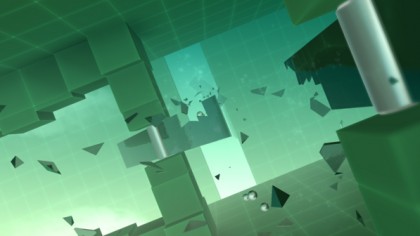
"I was grooving to Smash Hit, colors pulsing, when I experienced this sudden feeling of separation that is hard to describe. I became aware of my own first-person perspective as its own 'thing', independent of my body. I could intimately feel every nerve ending in my body of course, I could feel my ears to either side of my field of view."
Alex Beyman is a more seasoned psychonaut. He enjoys tripping on LSD - which can dramatically alter depth perception in virtual reality - mushrooms and NBOMe. He enjoys tripping underground. He once tripped underwater with a diving apparatus of his own design.
"Tripping in VR seemed like the next logical step," he tells me. So far his experiences have been mixed, but right now he's describing a particularly memorable one - a moment of enlightenment that took place during the on-rails Gear VR shooter Smash Hit.
"I think what triggered it is taking notice that the field of view within the Gear VR I was using that day is close to the same shape as the human field of view. Which made me realize that, although I was looking at a false reality assembled by a small computer and then fed into my eyes, it is not perceived directly but then deconstructed and interpreted by another, biological computer.
"One machine lying to another, but even with the headset off what I'm seeing doesn't get to me until it's been heavily processed."
Other than Smash Hit - which has all the swagger of a game built for tripping in, though actually started on mobile - Beyman's most positive trips have taken place in games he didn't expect to be so fruitful, like Adventure Time. "There are numerous insects in the first stage. Much like mosquitos or flies you might see in the woods during a normal trip, these ones left beautiful tracers."
He gets a kick out of close-up visuals where textures creep and colors trail; for Beyman, space exploration games are too open and endless. "I thought I'd want to look at beautiful abstract shapes. Nebuland for [Google] Cardboard is gorgeous and creative, albeit criminally short. I didn't get as much out of it as I expected. I did very much feel on the same wavelength as the studio behind it while playing though."
Fear VR
And of course, there are the bad experience. Tripping with virtual reality brings all of the usual risks, but with a lot of extra stimulation that can, quickly and dramatically, take things south. Beyman hasn't experienced anything too awful, but he does recall a time when he was playing horror game Dreadhalls and noticed the sound was breaking up.
He left the game and started up another, but by this time the mushrooms were in full effect, and elements from one game started bleeding into the other.
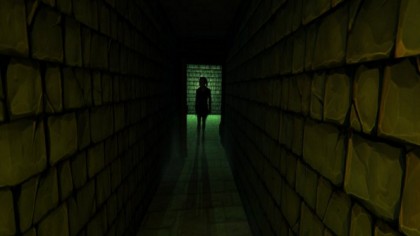
"When I switched over to Darknet, the normal overlord voice transformed into another jive ass ghost, f**king haunting my mortal ass with its jazzy but still mournful ghost ballads.
"If ever you are plagued by the mournful yet sassy and honestly genre-defying musical stylings of a ghost chorus while playing Dreadhalls in VR, do not let the fear or the rhythm take you. Instead, go to your happy place."
Michael, another VR tripper I speak to, also describes a bad experience, although this one didn't affect him directly. It was his brother's first time doing LSD with the Oculus Rift DK2, and Michael loaded up a music video by Glitch Mob - a band known for its use of fractal, symmetrical visuals - in the virtual desktop.
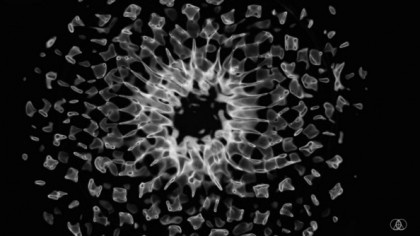
"I put that video with him in the virtual desktop with the screen really big and kind of far away and made it surround him, and basically you could tell he was lost in there, because when he took it off he was speechless."
The term is 'ego death': the person becomes completely depersonalised, unaware of who they are, where they are, or where they came from.
"He basically experienced ego death, or was on the verge of it, from basically having a music video in front of him. Because he was in a space, he could look around, he had no body, you might be able to imagine what he maybe experienced."
"Having that in a 3D space that surrounds you. It really is pretty mind-blowing if you haven't done anything like that before, added to the fact you're on LSD."
The best is yet to come
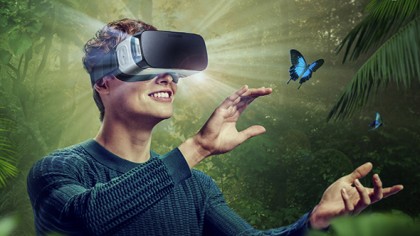
Reconciling the time dilation is the tricky bit, especially with more potent psychedelics. "Explorations into the human mind or 'trips' only last fifteen minutes with this neurotransmitter," says Ross, describing the world's most powerful psychedelic, DMT. "Eternity also happens to last 15 minutes."
DMT is such a powerful drug that a couple of psychonauts I speak to say they would never try it with VR. Ross, however, has just come out of a DMT trip with the GearVR and is dying to tell me about it. Bringing coherence to his experience is difficult; he likens the experience to "The Construct" in The Matrix, the white space between places. "But the artefacts weren't put there by a computer program, rather my mind populated the empty space."
His latest trip took place in DreamVR, an ethereal Gear VR "experience" filled with clouds and space. It was a good trip that featured a roaming pig.
"To remove the mundane from your current reality and introduce a 'created reality', your perception of mind is altered via the actual confronting of your demons," says Ross. "Mine came out as Selfish and in the thought of a pig that wandered around the virtual environment caring only for itself."
"I felt called to confront this actual representation of my mental self and determine not only its existence as a tangible part of my psyche but to attack and neutralize it. To remove it from my personality."
He notes a particularly nasty headache once the experience was over. "This is not characteristic of a typical DMT trip," he says. "I believe that the mental journey took an actual physical toll. Would I do it again? In a heartbeat."
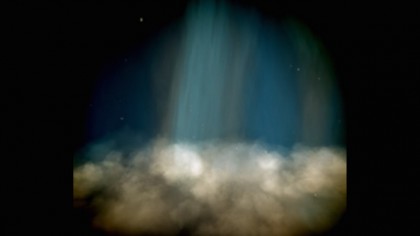
Virtual reality still isn't perfect; technological limitations break barriers to immersion, and some people find that getting high with VR doesn't just amplify the experience but breaks these barriers down. Certain drugs can help disassociate the body and the mind, which can help to "cure" motion sickness - one of the biggest hitches of VR - in some cases, according to one other VR tripper I speak to.
There is also the odd moment where the "explorer" can become completely resigned to the experience, believing that this virtual, drug-infused state is the real reality.
"I have had a few of what you might call 'breakthrough' moments where the drugs have helped to suspend disbelief that I was in a virtual world to the point where I believed it," says Ross.
"It's fleeting, it's not a constant 'Oh my god I'm stuck here'," explains Michael. "It's more 'That felt cool' for a short moment. I guess your brain accepts the fact you're somewhere else. It's very quick, but it does happen."
Tripping with virtual reality has its dangers, and we certainly do not condone it. The use of drugs can exponentially increase the sensory provocation, meaning traumatic experiences could be heightened dramatically. The potential of these risks is as yet unknown, and something that will likely be studied more closely in years to come.
"I would be very cautious until we know more about it," says Skip Rizzo, Research Scientist Professor at the Institute for Creative Technologies. "It would need to be studied under extremely controlled conditions with every possible kind of safeguard."
"You always have to consider safety," he adds. "Some of the drugs that are being used and are now being experimented with as positive therapeutic agents... those are done under very controlled conditions with a lot of safeguards involved."
Not that this will stop some people mixing the two. "As the technology and the content becomes more compelling, I expect there will be more people doing that," Skip says.
Certainly, the best is yet to come for our intrepid VR psychonauts. As the technology improves and solves its immersion-breaking problems - juddering images, fogged up lenses, even a need to touch the headset - the gulf between the virtual and the reality will become smaller. Virtual reality will be hard to kill this time - the technology is far more compelling, accessible and exciting to developers.
"For me growing up, VR is one of those cool future technologies I always hoped for, and the 1990s VR crash was devastating," says Beyman. "Probably how it felt for the prior generation to see men walk on the moon with a ten year cold start only to f**k around in low Earth orbit, the mother's basement of outer space, for the next half century."
There's a big element of escapism with VR. It's a constant theme I get from everyone I speak to: escapism from the real world and into one of endless possibilities. The drugs just give it that extra kick.
Ross describes it as "creating a realm". He talks about the experience as a "forest" in which you, and you alone, inhabit. "There are things alive in this forest. Some good, some feel bad. But this is a realm that you have created, a realm where you have absolute control over your environment."
"You are whoever you want to be. Not who you are."

Hugh Langley is the ex-News Editor of TechRadar. He had written for many magazines and websites including Business Insider, The Telegraph, IGN, Gizmodo, Entrepreneur Magazine, WIRED (UK), TrustedReviews, Business Insider Australia, Business Insider India, Business Insider Singapore, Wareable, The Ambient and more.
Hugh is now a correspondent at Business Insider covering Google and Alphabet, and has the unfortunate distinction of accidentally linking the TechRadar homepage to a rival publication.